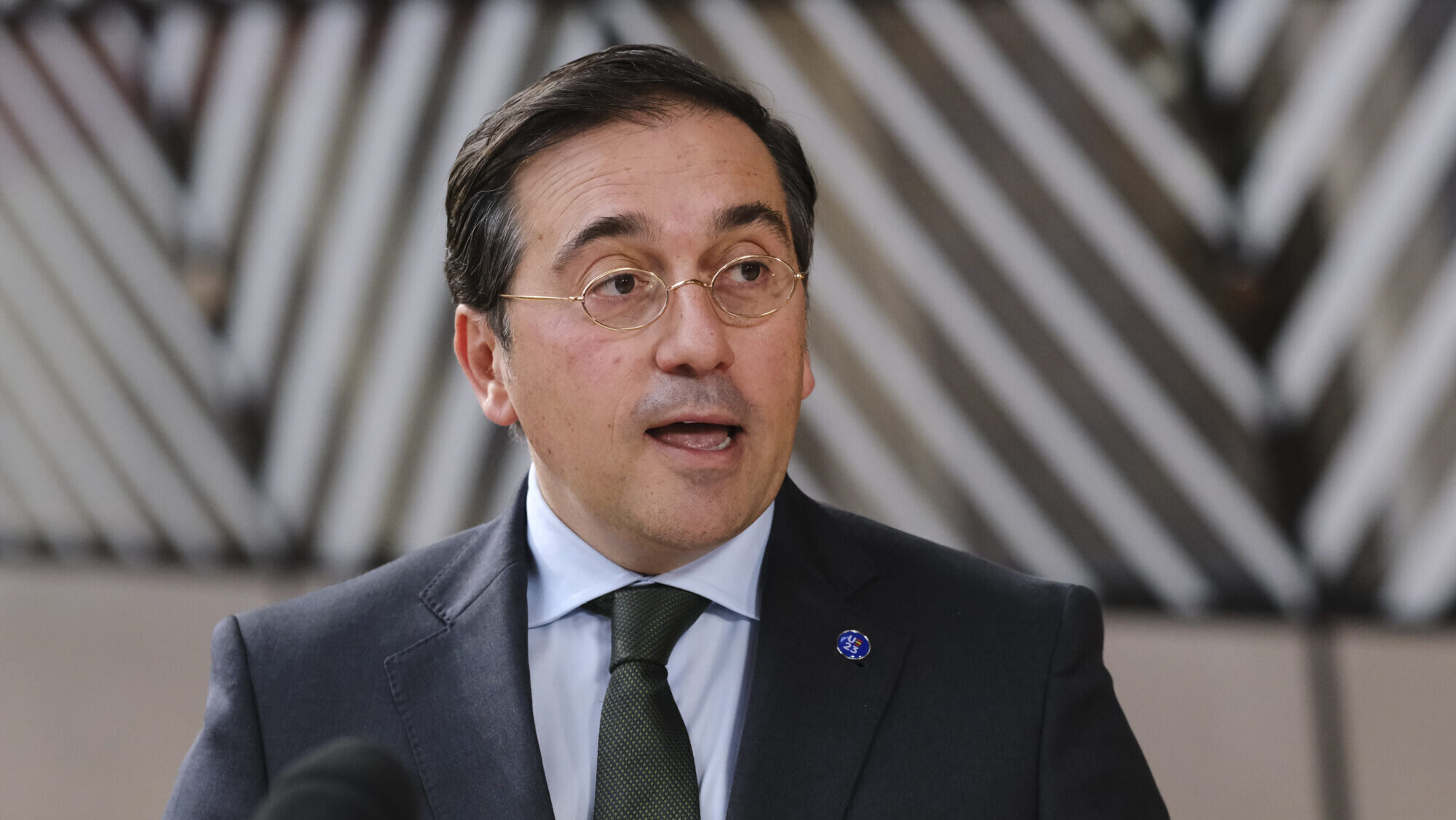
José Manuel Albares, Spanish Acting Minister for Foreign Affairs, the European Union and Cooperation
Photo: ©European Union
Spanish Prime Minister Pedro Sánchez’s political stunt in the EU Council meeting on Tuesday went exactly as expected.
Sánchez, who currently holds the EU’s rotating presidency while also in delicate negotiations to get another term as his country’s prime minister, took advantage of his EU position to force the General Affairs Council to debate a singularly Spanish topic—the inclusion of Catalan, Basque, and Galician in the EU’s recognised official languages.
This would allow for MEPs to debate in these languages and mandate the translation of EU documents and debates into them as well. The three languages are spoken by minorities within Spain, primarily within their corresponding regions, taught in schools in their regions, and recognised as “co-official” languages for the regional governments. National business is conducted entirely in Spanish, though the Senate may use the co-official languages in debates as the body has a more territorial basis for the distribution of Senate seats. However, hardly ever do senators take advantage of the opportunity.
But the country is in a tough spot, as the July elections resulted in a hung parliament. Forming a government will take every vote, and the swing votes to get are those of Catalan independentists, particularly from the regional party Junts Per Cat, led by MEP and Spanish fugitive Carles Puigdemont.
One of their conditions for Sánchez was to petition the EU to recognize Spain’s co-official languages—Galician, Catalan, and Basque. This is not the first time Spain has brought the issue to Brussels. It made the same request in 2010 and received a decisive no. Independentists in Spain cite the example of Switzerland, notably not an EU-member, which has four official languages (including Romansh), but culturally and practically, the situation in Spain is very different. Though regional languages, including those not officially recognised, have remained alive, practically speaking, Spanish has served as the common and dominant language for the entire country for decades that bleed into centuries.
Nevertheless, independentists, particularly in Catalonia, started a concerted push to replace Spanish with the regional language following the fall of the Franco regime.
Though they have had limited success, they want Sánchez to join their game.
Without previous work on the subject, such as impact studies or working groups among diplomats, Sánchez added a vote on the matter to the agenda of the General Affairs Council meeting. His proposal was quite generous, sources close to the meeting told the Spanish newspaper El Mundo.
Spain, represented by José Manuel Albares, acting minister of foreign affairs, European Union and Cooperation, assured the other foreign ministers that his country would pay all the extra EU expenses associated with this new proposal, that it was “good for Europe,” and was in line with the “multilingualism objectives” set out in Article 3 of the Treaty on European Union, and even suddenly offered to “prioritise Catalan” and leave the other two languages for later. Nevertheless, the General Affairs Council postponed the debate until it had data, reports from the institutions’ services, and more clarity. The council didn’t set a date to take up the issue again, and most likely, it never will.
But Sánchez can return to Madrid and negotiate for a second term as Spain’s prime minister, having ticked off another Catalan demand.
The failed measure coincided with the first day that regional languages were allowed to be used in the lower chamber of the Spanish parliament, the 350-seat Congress of Deputies, again a concession to independentists. While Sánchez is only the country’s caretaker prime minister, his party did manage to gain the presidency of the Congress of Deputies in the new parliament’s first order of business, a position that gives it power over much of the congressional operations. The deputies found simultaneous translation ear devices sitting at their desks when they arrived.
The main topic of debate for the day? Making the rule change to a multilingual body permanent.
In the boldest of gestures, VOX’s 33 deputies walked out of the congressional Babel session.
“What we are witnessing, in short, is an exaltation of the division, an exaltation of confrontation done with the money of all Spaniards,” VOX’s parliamentary spokesman, Pepa Millán, explained before she and her fellow deputies got up. “We are not going to be complicit in this breakdown of our [national] coexistence.”
